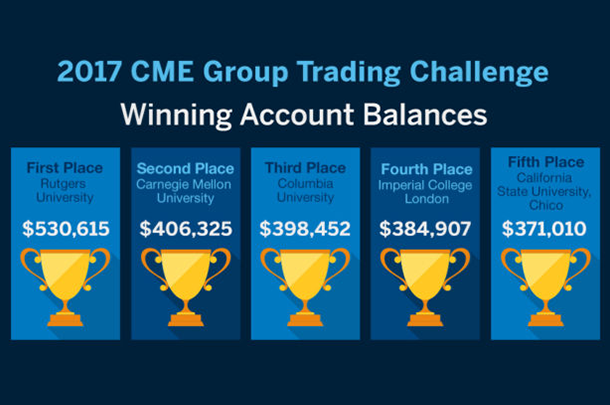CMU team places second in global trading challenge
Millennials are stereotyped as being uninterested in economic trends, as statistics have shown that fewer millennials invest in property and stock than do previous generations. However, these five engineering students are proving that stereotype wrong.
In recent years, the term “millennial,” referring to the group of people born between the early 80s and the mid-90s, has become nearly derogatory, as millennials are stereotyped as being supposedly narcissistic, entitled, and sensitive. Another rather specific stereotype is that they’re uninterested in economic trends, as statistics have shown that fewer millennials invest in property and stock than do previous generations.
However, college students all across the world are proving this particular stereotype wrong.
The more experienced members were in charge of making decisions and entering and exiting trades based on a myriad of factors and conditions.
Samuel Lee, Student, Electrical and Computer Engineering, Carnegie Mellon University
For the past 14 years, CME Group, a leading derivatives marketplace, has invited graduates and undergraduate students to participate in an annual Trading Challenge, taking place over the course of four weeks. The challenge offers students a chance to learn techniques for trading and educate them on the significance of global markets, and this year, the competition had its highest number of participants yet at nearly 600 teams from 35 countries all around the world.
This year also marked the second-place win of a team from Carnegie Mellon University, made up of five undergraduate students—Samuel Lee, Fernando Canari, Avishek Ganguli, Shihan Wang, and David Yuan—all of whom are studying electrical and computer engineering with the exception of Canari, who is studying mechanical engineering.
Lee was the student who formed and led the team, having discovered the competition as a member of the Tartan Student Fund. Having had an interest in trading beforehand, he roped in students who he knew shared that interest as well.

Source: CME Group
A team of undergraduates from Carnegie Mellon University received second place in the 2017 CME Group Trading Challenge.
To prepare, the team read up on the basics of trading techniques and future investing. They determined which data sources they could rely on and drew up a rough plan for the competition, ready to take it by storm.
“The more experienced members were in charge of making decisions and entering and exiting trades based on a myriad of factors and conditions,” says Lee. “Most of the other members were involved with perusing data sources to monitor trends, and also to monitor the account holdings and alert the team of any large movements in prices.”
After four weeks of competing, the team came away with the second-place prize of $1,000 per person, a truly impressive feat given the global scope of this competition. Coming in first place was a team from Rutgers University.
Placing 14th was another team from CMU, comprised of students Yisu Zhou, a computational finance major, Zhuoyang Wu, a statistics and machine learning major, and Xue Yang, a math major. Zhou plans to compete again in the future. The competition places restrictions on repeat winners, so Lee and his team will not be competing again in the near future. However, Lee is open to helping out other CMU teams who are interested in participating and would like to know more.
Congrats to both teams on their achievements and for bringing honor not only to the CMU community but to the millennial community as well.
